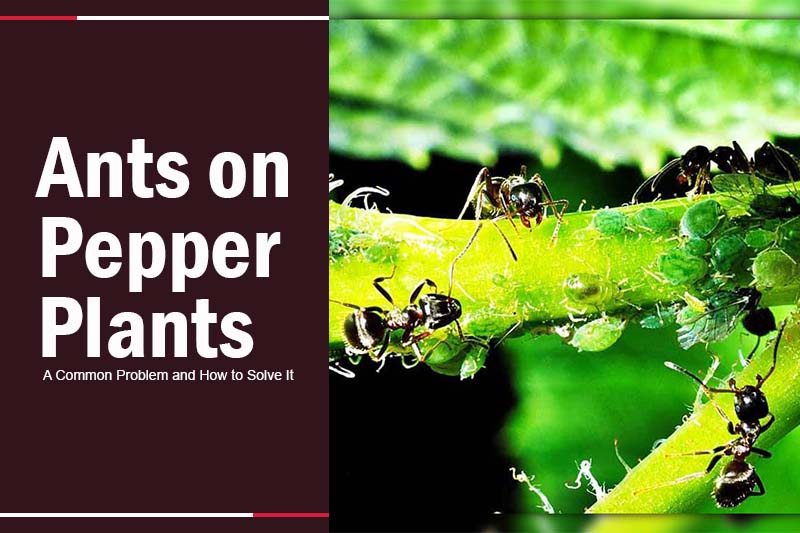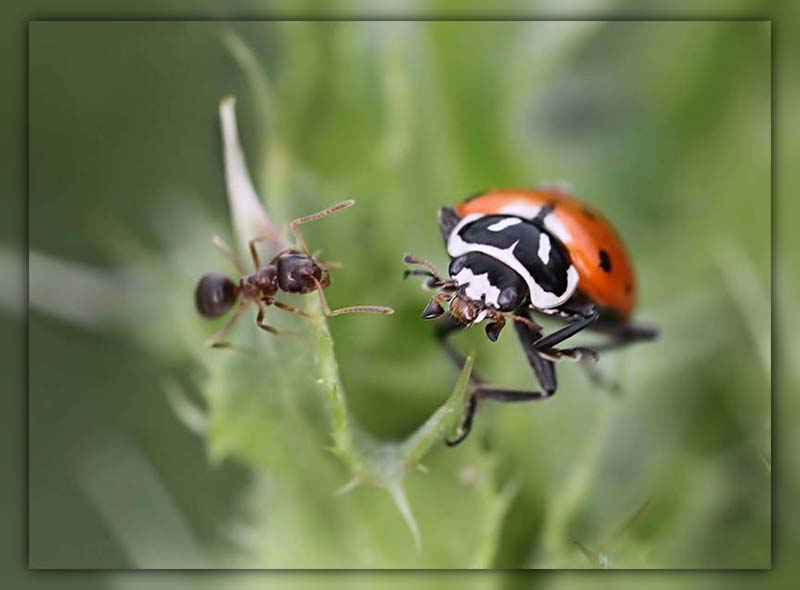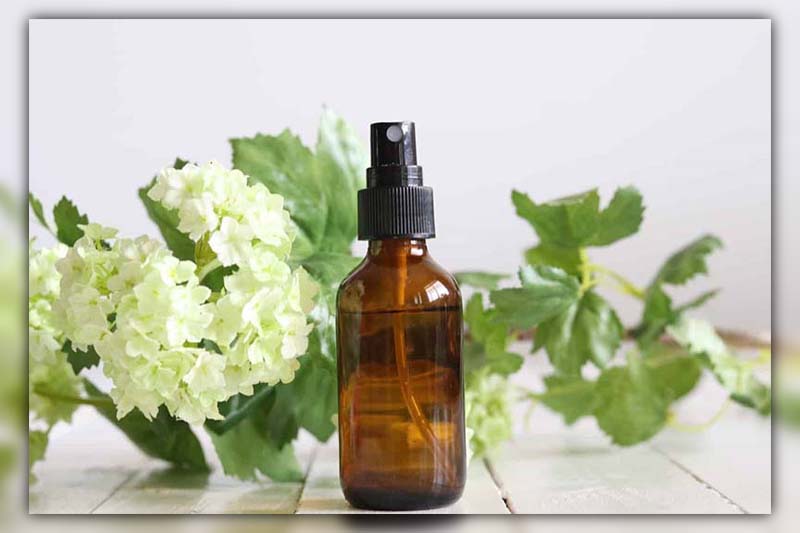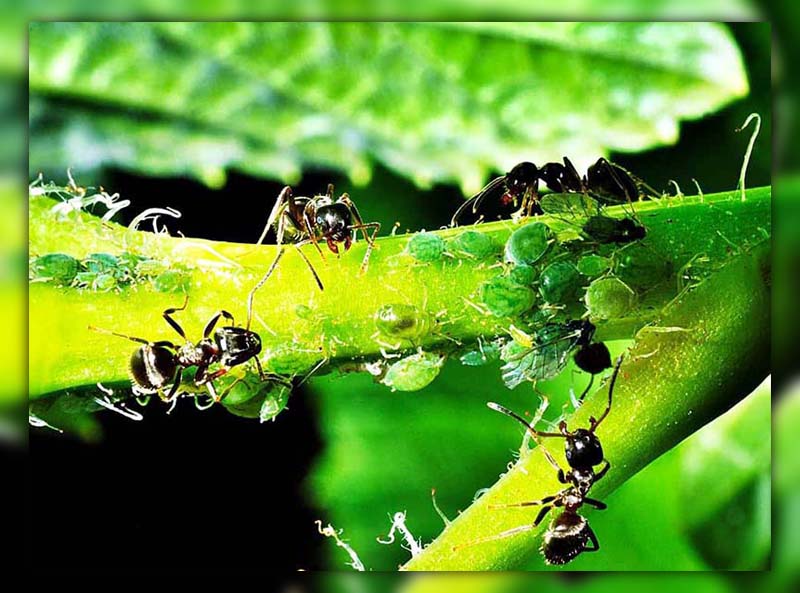In this article, you will learn what attracts ants on pepper plants, how they affect their growth and health, and what you can do to prevent and control them.

1. Do ants eat Pepper plants?
The surprising truth is that ants don’t actually eat pepper plants!
Ants are more interested in the sweet aphid honeydew produced by tiny bugs called aphids, which are commonly found on pepper plants.

2. How to get rid of ants on Pepper plants (8 ways)
1. Use vinegar
One way to get rid of ants on your pepper plants is to use vinegar. Vinegar has a strong odor that disrupts the ants’ communication and suffocates them.
To make a vinegar spray, you need to mix equal parts of vinegar and water in a spray bottle.
Then, you need to spray the solution on the leaves of your pepper plants and around your garden where you see the ants. The vinegar will kill the ants in a few minutes and deter them from coming back.
2. Using neem oil
Neem oil is an effective and natural way to eliminate ants on your pepper plants. Neem oil contains organic compounds that repel and reduce insect feeding.
To use neem oil, you need to dilute it with some water and pour it into a spray bottle.
Then, you need to shake the bottle well and spray the solution on the ants and the entire plant. Neem oil will kill the ants and prevent them from coming back.
3. Using organic insecticides and pesticides
Organic pesticides are the best option to eliminate pests that attract ants to your pepper plants. These pests, such as aphids, secrete a sweet substance called honeydew that the ants feed on.
By killing the aphids, you can reduce the food source for the ants and prevent them from harming your plants. Chemical pesticides can damage the health of your plants and the environment, so you should avoid using them.
4. Essential oil sprays
Another natural remedy to get rid of ants on your pepper plants is to use essential oil spray.
You can use different types of essential oils, such as garlic, clove, rosemary, and others, that have strong odors that repel ants.
To make an essential oil spray, you need to add a few drops of your chosen oil to some water and pour it into a spray bottle.
Then, you need to spray the solution on your pepper plants and around your garden where you see the ants.

5. Diatomaceous earth
Diatomaceous earth is a natural and powerful way to eliminate pests that attract ants to your pepper plants.
It kills ants and other insects by dehydrating them and damaging their exoskeletons. You need to use a small amount of diatomaceous earth and sprinkle it over the areas where you see ants on your pepper plants.
6. Borax and Powdered Sugar
Borax is a natural and effective way to get rid of ants on your pepper plants. Borax is a mineral that can disrupt the ants’ digestive system and cause them to die.
You can make a borax bait by mixing one part borax with three parts powdered sugar. Then, you can sprinkle the bait around your garden or near the ant nests.
The ants will be attracted by the sugar and take the borax back to their colony. The borax will kill the ants and their larvae, reducing the ant population.
7. Lemon Juice
To get rid of the ants on your pepper plants, you can use a lemon juice spray.
Lemon juice has a strong odor that interferes with the ants’ communication and navigation. You need to mix equal parts of fresh lemon juice and water in a spray bottle.
Then, you need to spray the solution generously on your pepper plants and around your garden where you see the ants.
8. Vaseline
To protect your pepper plants from ants, you can apply Vaseline on the stem of your plants.
Vaseline is a sticky substance that can trap and stop both insects from crawling up to the leaves and fruits of your plants.
3. Causes of ants on pepper plants
Ants are attracted to pepper plants due to aphids’ sugary excretions and honeydew.
When aphids infest pepper plants, they leave a sticky residue that is sugary and tasty for ants on the leaves and stems.
At the same time, those pests are common in pepper plants with curled and yellow leaves.

FAQs
Can Ants pollinate Peppers plants?
Ants are not the best pollinators for pepper plants, even though they can transfer some pollen from one flower to another. Ants are more likely to harm your pepper plants than help them.
Do Ants kill Pepper Plants?
No, ants are not the main cause of death for pepper plants, except for leafcutter ants that can cut off too many leaves from young plants and kill them.
However, ants can still harm your pepper plants by collaborating with aphids, which are insects that suck the sap from your plants.
Conclusion
You have learned everything you need to know about ants on pepper plants. You have discovered what attracts ants to your plants, how they affect their growth and health, and what you can do to prevent and control them.
We hope you found this blog helpful and informative. If you want to learn more about pest control and gardening, please check out our other blogs at Pestweek.

Calina Mabel has over 15 years of experience in the field of journalism and communications. Currently, Calina Mabel is the Content Writer for categories such as Cockroach, Ants, Bed Bugs, Mosquito, Rodent, Termite, and Flies on Pestweek.com. She aims to build content for these categories with a focus on providing valuable and accessible information to readers, in order to create the world’s largest knowledge community about Pests.
All content written by Calina Mabel has been reviewed by Emily Carter.

